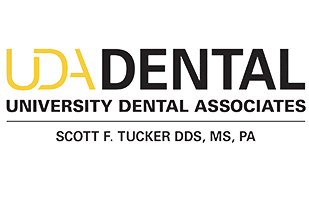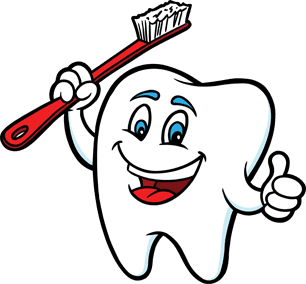Children’s Dentistry
Frequently Asked Questions (FAQs)
How often should my child see the dentist?
We recommend scheduling your child’s dental appointments every six months. We will do an oral exam, clean your child’s teeth and apply fluoride at each of these appointments.
When do the first teeth start to erupt?
At about 6 months, the two lower front teeth (central incisors) will typically erupt first, followed shortly by the two upper central incisors. The remainder of the baby teeth appear during the next 18 to 24 months, but not necessarily in an orderly sequence from front to back. At 2 to 3 years, all of these 20 primary teeth should be present.
How can I help my child through the teething stage?
Sore gums and jaws when teeth erupt are part of the normal eruption process. The discomfort is eased for some children by use of a teething biscuit, a piece of toast, or a frozen teething ring. Your pharmacy may also have medications that can be rubbed on the gums to reduce the discomfort.
How should I clean my baby's teeth?
A toothbrush with soft bristles and a very small head is the best choice for infants and toddlers. Brushing at least once a day, at bedtime, will remove plaque bacteria that can lead to decay.
When should my child start using toothpaste?
We recommend using fluoride toothpaste when your child's first baby molars emerge. At this stage, it is important to limit the amount to a smear of toothpaste. As your child grows and becomes more comfortable spitting, the amount should increase to about the size of a pea.
Can thumb sucking be harmful for my child's teeth?
Thumb and pacifier habits that go on for a long period of time can create crowded and crooked teeth or bite problems. If children are still sucking their thumbs or fingers when the permanent teeth arrive, a mouth appliance may be recommended by your dentist. Most children stop these habits on their own.
How often should I replace my child’s toothbrush?
We recommend replacing your child’s toothbrush every three to four months, or if the bristles are noticeably worn. Also, if your child gets sick, replace the toothbrush after he/she is well again.
Should my child floss?
Yes! Remember, your child will likely need your help to floss. It is an important habit to start. Encourage your child to floss at least once a day.
If my child gets a toothache, what should I do?
To comfort your child, rinse his/her mouth with warm salt water and apply a cold compress or ice wrapped in a cloth on your child's face if it is swollen. Do not put heat on the sore area. See us as soon as possible.
What causes tooth decay in children?
Four things are necessary for cavities to form -- a tooth, bacteria, sugars or other carbohydrates and time. Dental plaque is a thin, sticky, colorless deposit of bacteria that constantly forms on everyone's teeth. When you eat, the sugars in your food cause the bacteria in plaque to produce acids that attack the tooth enamel. With time and repeated acid attacks, the enamel breaks down and a cavity forms.
If my child gets a cavity in a baby tooth, should it still be filled?
Primary, or "baby," teeth are important for many reasons. Not only do they help children speak clearly and chew naturally, they also aid in forming a path that permanent teeth can follow when they are ready to erupt. Some of them are necessary until a child is 12 years old or longer. Pain, infection of the gums and jaws, impairment of general health and premature loss of teeth are just a few of the problems that can happen when baby teeth are neglected.
Are dental x-rays safe for my child?
All of our practices use digital x-rays. The amount of radiation received in a digital dental x-ray is extremely small, much less than conventional dental x-rays. Even though there is very little associated risk, our dentists are always careful to minimize the exposure of our patients to radiation.
My child plays sports. How should I protect my child's teeth?
A mouth guard should be a top priority on your child's list of sports equipment. Athletic mouth protectors, or mouth guards, are made of soft plastic and fit comfortably to the shape of the upper teeth. They protect a child's teeth, lips, cheeks, and gums from sports-related injuries. Any mouth guard works better than no mouth guard, but a custom-fitted mouth guard fitted by our dentist is your child's best protection against sports-related injuries.


























